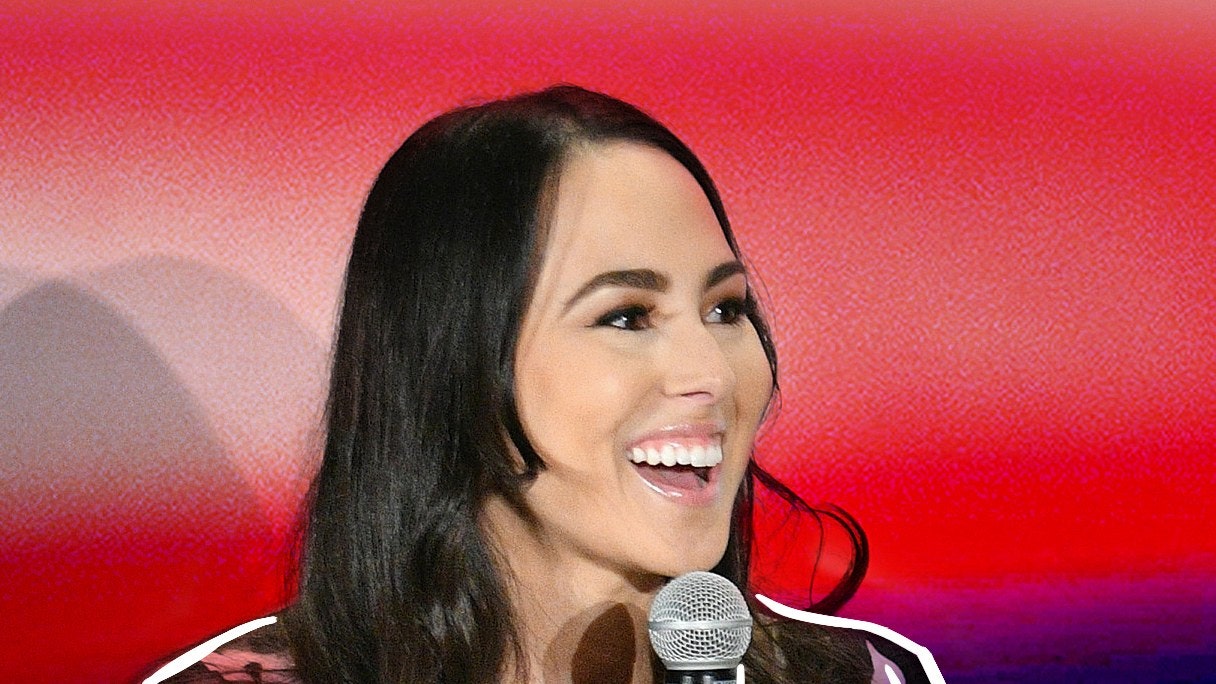This International Women’s Day, Invest in Girls

Today, as we celebrate our third anniversary, and observe International Women’s Day 2020 on March 8, I’m reflecting on the most important lesson I’ve learned since starting this work: By the time we’re talking about women’s anything, we’re too late. Our top priority needs to be investing in girls.
And we can start by taking seriously how much girls have to offer as role models for adults.
This is why I’ve come to believe, over the past three years, that those of us who are passionate about women’s rights and equality must broaden our efforts, our thinking, and our strategies for reaching this rising generation.
When I became a parent I immediately saw how badly we need better, more representative children’s books that encourage girls to be bold and take risks. The solution to this problem is simple, though I admit it sounds a little nuts: if you can’t find the kinds of stories you’d like to read to your children, write them yourself.
I never planned to publish a children’s book. But I got so sick of reading to my daughters over and over again “about a white boy and his dog,” as the activist Marley Dias has put it, that I wrote a true story about my mom and aunt when they were little girls. To my surprise and delight, it will be in bookstores this June.
Another way we can invest in girls—and help build a more equal future—is to change the way we raise our boys.
Last fall I wrote about how restrictive ideas about masculinity are changing, but not quickly enough—and how we can’t afford to leave boys behind, or let their parents off the hook. After all, as the civil rights lawyer and activist Tahir Duckett has pointed out, more than 90 percent of all perpetrators of sexual violence are boys or men. Yet people talk about sexual violence as a “women’s problem.”
We can only make progress if we start to see this problem for what it is—evidence of the urgent need to change male behavior starting not in adolescence, but in early childhood. Because that’s when the foundation, in Duckett’s words, is laid.
I’ve written about how my daughter began internalizing subtle bias against her curly hair even before her third birthday. Now that she’s in preschool, I see her classmates kicking around the same unconscious notions, trying on ideas and attitudes they’ve absorbed at home—and from the patriarchal society around them.
Some of these destructive attitudes are subtle, and therefore are all the more insidious and difficult to combat. Others are much more obvious.
When the President of the United States bullies Greta Thunberg on Twitter, for example, it’s no wonder his signature brand of harassment spreads to countless American schools.
When women show leadership and power, it’s no longer surprising when people call them angry or shrill and tell them to “chill. “
And when bullying and sexism start early—when we suggest that girls dim their lights when they’re young, and then discourage them again when they nevertheless grow into bold young women—it’s only natural that “girls’ issues” become “women’s issues,” and the vicious cycle repeats itself. Another generation fights the same battles women have been fighting since time immemorial.
International Women’s Day seems like the perfect occasion to send a message: Not on my watch.
That’s why I’m encouraging everyone I know to think bigger—by which I mean earlier—when it comes to fighting for women’s equality. It’s past time to invest in our girls.
Meena Harris is the founder and CEO of the Phenomenal Woman Action Campaign, a female-powered lifestyle brand that brings awareness to social causes. Her children’s book, titled Kamala and Maya’s Big Idea will be published on June 2, 2020. Her new Phenomenal Girl campaign is live now.
